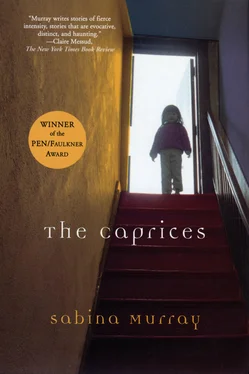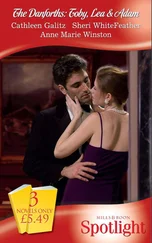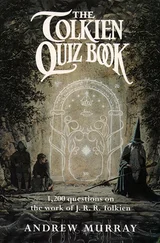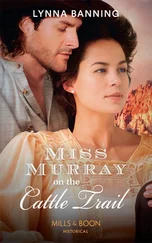Norm Burnside was in town that day. He was carrying a sack of oats and at first it seemed that the bandy legs and battered hat belonged to the sack rather than the man who was struggling along beneath it, but the hat was Norm’s. Norm was one of the old fellows who still kept corks bobbing around the brim of the hat, attached by fishing line, to keep the flies out of his eyes. Bob hadn’t seen him in years, not since before the war. That was not uncommon in a place where the stations were huge kingdoms unto themselves. You saw your neighbors at shearing time or at the rare social gatherings, which were usually at shearing time anyway. People often limited their sorties into town to a few times a year and running into someone was more of the exception. Norm heaved the sack of oats into the back of his truck and looked over at Bob with the same squinty-eyed expression that he used when tallying up the casualties of the latest drought. Norm didn’t recognize him at first; Bob took his hat off to give Norm a good look before they even greeted each other.
“Hello, Bob.”
“Good to see you, Norm. How’s your wife?”
“She died last week. Wasn’t in good health the last few years.”
“I’m sorry, Norm. She was a good woman.”
“That she was.”
They looked down at the dusty street in a moment of respectful silence.
“Terrible about Mark,” Norm finally ventured. “Now there was a good lad. Handsome and strong. Best sheep shearer I ever saw. .”
Bob nodded in agreement.
“Hear you married Noreen Grey. .”
Bob nodded again. “Is there gonna be a funeral?”
“Funeral? I’m afraid not. It’s been too hot. .”
“Well, it’s been good seeing you, Norm. I’ll pass the sad news along to my mother. She always liked. .”
“Margaret.”
Bob nodded and returned his hat, lowering the brim across his forehead. He watched Norm’s pickup, followed by a cloud of dust, as it edged toward the line of the horizon. Bob looked down the road that led back to his house. Somewhere back there was Mark; he could hear him laughing. The laugh echoed in his head, but Bob could no longer conjure up Mark’s features. His face wavered in false memories; his likeness was recalled in the framed photographs that littered mantels all the way to Perth. Mark with a trophy. Mark in uniform. Mark holding a merino in an awkward embrace, shears poised. Mark with his arm around his little brother — two-dimensional memories that seemed far removed from truth. They were not his recollections but the legends of his townspeople.
Bob picked up the sack of feed and put it in the back of his truck. With a red handkerchief, he wiped the sweat from his brow. The sun was still high in the sky. Bob squinted up until the yellow glare bathed all in a cleansing white, erasing the feed store, the road, his truck. He knelt down to his shoelaces and tied them in firm knots. He stood, pulling himself straight until the two tricky joints in his back snapped into alignment, and then he began to walk.
KEES BOUMAN stood alone in the sala of his house. The breeze, which had earlier bowed the tops of the palms, was suddenly quiet and the only sound was the clock as it shuddered to each tick. Middle age was making him contemplative, he thought, because with each forward step of the clock, second by second into a modern future, Bouman felt the jungle struggle forcefully against it. Here in the tropics there was one endless season that cycled on and on, then circled back onto itself like a serpent eating its tail. He felt like the first, or maybe the last, man on earth. His evening tea was not waiting on the table and his daughter, Katrina, was not ready to serve it.
Bouman went to stand at the door. The orange sun was sinking fast behind the topmost brushes of the palms. There was a soothing hush hush of waves, out of sight from where he stood. A bird excited by the final moments of the day let forth a rattling cackle, beat the warm air with its wings, then followed the sinking sun into the jungle. If his wife had still been alive, she would have stood on the doorstep and started yelling. One call from her and the entire household would have leaped to attention, come running across the swept dirt of the compound. The very chickens would have cackled to life. That gnarled pony tied to the post would have raised his head in respectful attention, but Bouman could only transfer his weight from one bare foot to the other, adjust the waist of his baggy pants, and hope that someone would notice him so forlorn and bereft of tea.
He smelled chicken curry. Bouman looked to the cooking shack and was surprised to see Katrina exit. She was wearing her new white kabeya, the one embroidered in a floral motif, which had been very costly; she was hurrying through the compound’s center with such speed that she lost her slipper and had to go back for it.
“Katrina!” called Bouman.
She stopped, stunned, and seemingly guilty. “Father?”
“Where is my tea?”
Katrina put her slipper on and turned back in the direction of the cooking shack.
“What is this nonsense?” he called again.
“Father, we have a visitor.”
“A visitor?”
“He’s on the veranda. I’ll bring the tea there.”
Bouman raised his eyebrows in resignation. He hadn’t heard anyone on the veranda but now on reentering the living room he could hear the low voice of Aya, the housekeeper, chattering away. He peeked out the door and sure enough, seated at the table — on which someone had set a large stinking bunch of frangipani — was a young native in brilliantly pressed colonial whites. Bouman looked at his own bare feet and baggy batik pants with some amusement. His European shirt, made from coarse local cotton, was frayed at the collar. Bouman felt a certain pride in all of this, especially the way that it would annoy Katrina, the way her immaculate dress was annoying him. Aya was squatting on the floor next to the visitor’s ankles. Her elbows rested on her knees and she absently swatted the air in front of her face for mosquitoes.
When Aya noticed Bouman she jumped up straight.
“Tea,” she said, embarrassed.
“Oh, forget the tea,” said Bouman. “Gin now and some limeade for our visitor.”
“Mr. Bouman. .” The visitor was now standing, his hands clasped behind his back, his head at a respectful incline.
“Yes, I am Bouman. And you?”
“I am Tan Lumbantobing. I deeply appreciate your hospitality.”
“I can take no credit for that,” said Bouman. “But I am not so rude as to deny that the hospitality of my daughter and my housekeeper is correct and admirable.” Bouman smiled. He was actually relieved at his guest, better than a European planter, who would be eager for fresh sympathy over disease and sullen workers. “You will not mind if I call you Tan?”
The young man smiled.
“Are you a visitor or a customer?”
“That depends on what you’re selling.”
“You are looking for weapons and gunpowder.” Bouman shook his head. “Excuse my frankness, but I am an old man and don’t want to die not having spoken my mind.” Bouman was just forty-five, but felt a great deal older. The sun had creased his skin and the army had calcified his joints, which made him seem old at first but, on closer look, permanent.
The drinks arrived and Bouman poured himself a glass of gin. Tan was smiling at his hands in subtle, respectful silence.
“I would offer you gin, but I suspect your religion forbids it. If you care to help yourself, go right ahead.”
Tan took the glass of limeade. He sipped and nodded at Bouman. “This is very refreshing,” he said.
“Yes,” said Bouman, “refreshing. I prefer my beverages steeped and aged — pickled berries,” he said, raising the gin, “or dead leaves soaked in hot water.”
Читать дальше












